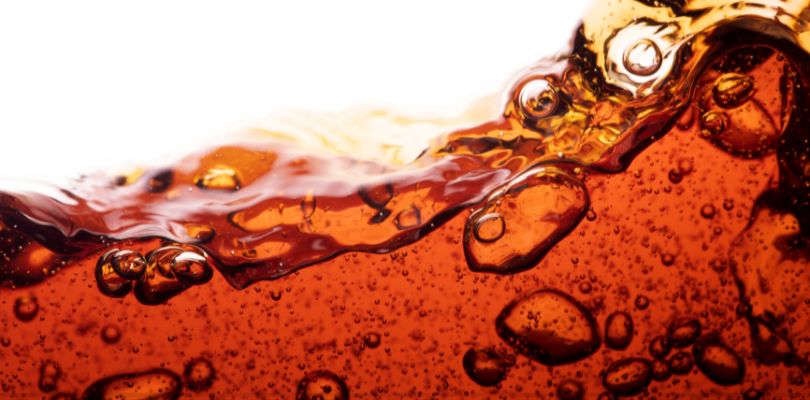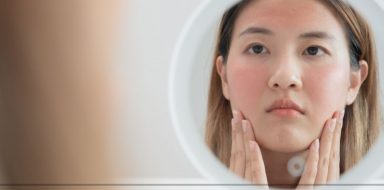Worst Drinks for Eosinophilic Esophagitis
Eosinophilic esophagitis, also known as EoE, is a chronic disease characterized by inflammation of the esophagus (the tube that connects the mouth to the stomach). Your diet can have a large impact on the severity of EoE. Therefore, people with EoE should avoid certain drinks. In this article we'll look at drinks to avoid, what you should be drinking and different treatment options.
Drinks to Avoid with Eosinophilic Esophagitis
1. Alcoholic Beverages
Alcohol, particularly beer, wine and spirits, can irritate the esophagus and worsen inflammation. It also relaxes the lower esophageal sphincter, allowing stomach acid to reflux, which can aggravate EoE symptoms.
2. Caffeinated Drinks
Caffeine has been known to increase stomach acid production, which can lead to acid reflux and worsen EoE symptoms. As a result, drinks such as coffee, tea and energy drinks should be consumed in moderations or, in some cases, avoided altogether.
3. Citrus Juices
Citrus fruits like oranges, lemons and grapefruits are highly acidic. Overly acidic juices can cause acid reflux, irritating the esophagus and exacerbating EoE symptoms.
4. Carbonated Beverages
The carbonation and acids in sodas and sparkling waters can cause bloating and increased pressure in the stomach, leading to acid reflux.
5. Chocolate Drinks
Chocolate contains caffeine and a bitter compound called theobromine, both of which can relax the lower esophageal sphincter, leading to acid reflux and worsening EoE symptoms.
6. Milk and Dairy-Based Drinks
Dairy can be a trigger for some people with EoE. Cow's milk and dairy-based drinks like milkshakes may cause an allergic reaction or contribute to inflammation in the esophagus, worsening EoE symptoms. Consider replacement milks such as oat, almond or soy.
There are many lupus signs and symptoms that you should know about if you suspect you have this condition. Detection is key for treatment.
7. Tomato-Based Drinks
Tomatoes are highly acidic and can trigger acid reflux, exacerbating EoE symptoms.
8. Spicy Drinks
Drinks with added spices, such as spiced teas or hot toddies, can irritate the esophagus and lead to increased symptoms.
9. High-Sugar Drinks
Sugary drinks like sweetened iced teas and sodas can contribute to inflammation and may worsen EoE symptoms. Additionally, they can cause spikes in blood sugar, which might have indirect effects on EoE.
10. Artificially Flavored Drinks
Artificial flavors and preservatives in many flavored drinks can be potential allergens or irritants for individuals with EoE.
Safe Drink Alternatives for Eosinophilic Esophagitis
When it comes to EoE, everything in moderation is key. However, if you’d rather avoid certain drinks altogether, there are a few alternatives you can opt for that should leave you without any symptom flare ups:
- Water: Plain water is the safest choice, as it hydrates without triggering symptoms.
- Herbal teas: Non-caffeinated, non-acidic herbal teas, such as chamomile or ginger, can be soothing for the esophagus.
- Smoothies: Smoothies can be a nutritious option, as long as they’re made with non-dairy milks, not overly acidic fruits and less sugar.
Treatment Options for Eosinophilic Esophagitis
In addition to dietary changes, there are several different treatment options available for EoE that aim to reduce inflammation and acid reflux. Some of the treatment options include:
Medication
- Proton pump inhibitors (PPIs): Often used to reduce acid production and inflammation.
- Systemic steroids: Used in more severe cases but typically avoided long-term due to side effects.
- Topical steroids: Swallowed steroids (like fluticasone or budesonide) to reduce esophageal inflammation.
Dilation
Dilation is a procedure that can be used to stretch the esophagus for patients struggling with esophageal strictures, or a narrowing of the esophagus. Dilation helps to make swallowing easier and is a good option if medication and steroids aren't helping.
Final Notes
Treating EoE comes down to understanding your symptoms and triggers. Effective management of EoE typically includes a combination of dietary changes, medications and regular monitoring to control inflammation and prevent complications. If you are struggling with EoE, it's strongly recommended that you contact your doctor as soon as possible. They can help you identify and curate a plan that works for your lifestyle, symptoms and specific needs.







